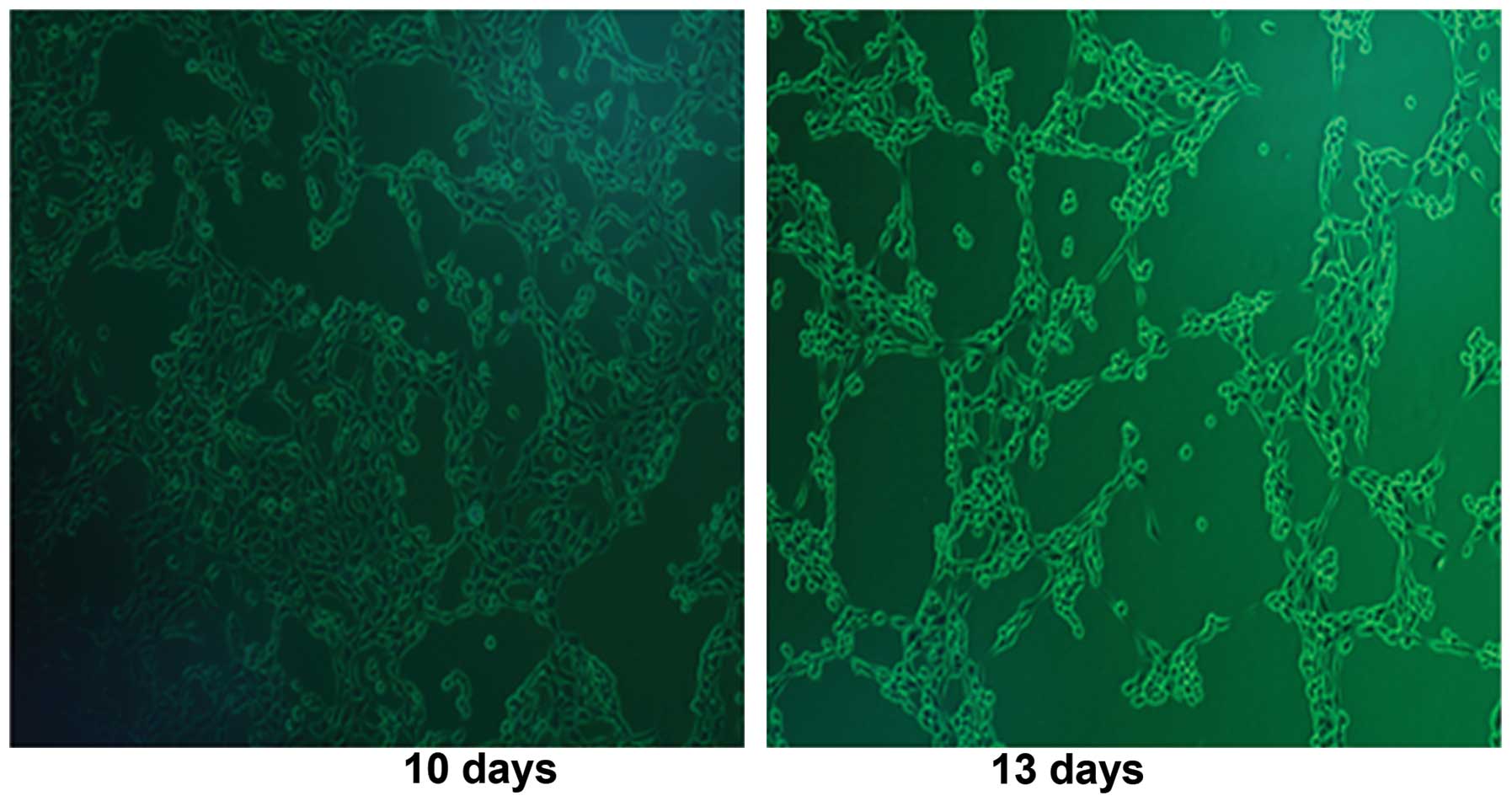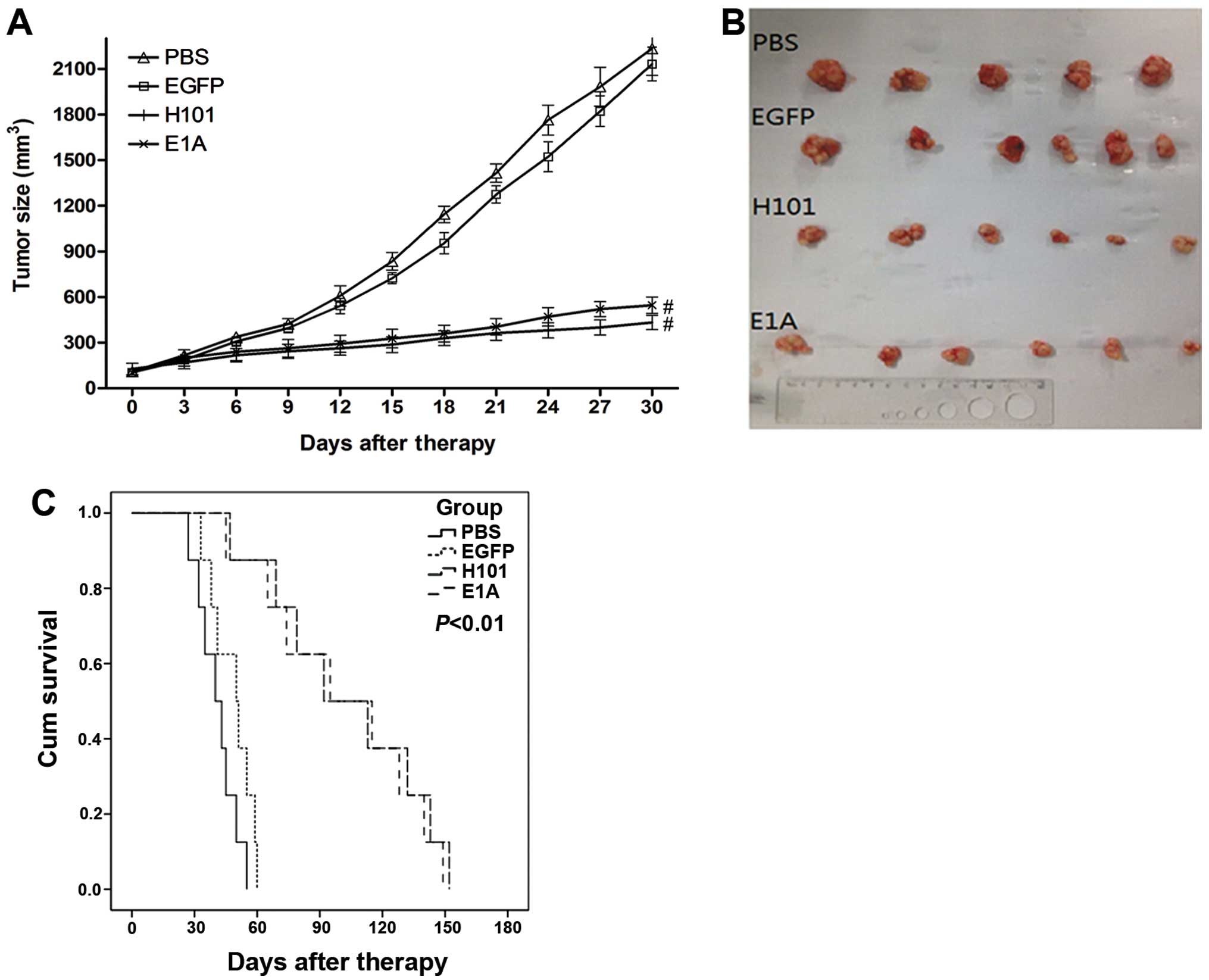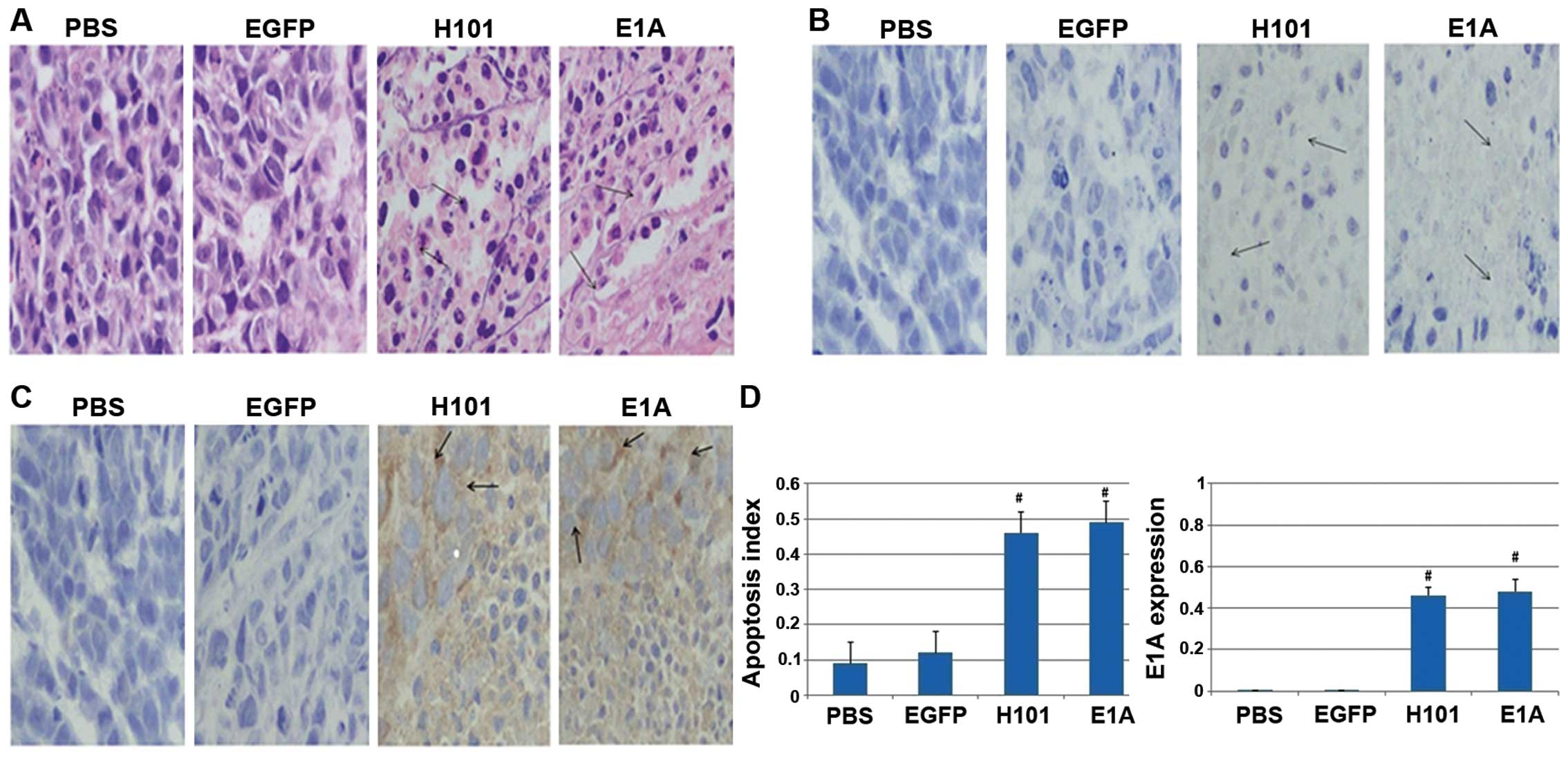|
1
|
Siegel R, Naishadham D and Jemal A: Cancer
statistics, 2013. CA Cancer J Clin. 63:11–30. 2013. View Article : Google Scholar : PubMed/NCBI
|
|
2
|
Houlston RS, Collins A, Slack J and Morton
NE: Dominant genes for colorectal cancer are not rare. Ann Hum
Genet. 56:99–103. 1992. View Article : Google Scholar : PubMed/NCBI
|
|
3
|
Fu VX, Dobosy JR, Desotelle JA, et al:
Aging and cancer-related loss of insulin-like growth factor 2
imprinting in the mouse and human prostate. Cancer Res.
68:6797–6802. 2008. View Article : Google Scholar : PubMed/NCBI
|
|
4
|
Engstrom W, Shokrai A, Otte K, et al:
Transcriptional regulation and biological significance of the
insulin like growth factor II gene. Cell Prolif. 31:173–189. 1998.
View Article : Google Scholar
|
|
5
|
Engel N, Thorvaldsen JL and Bartolomei MS:
CTCF binding sites promote transcription initiation and prevent DNA
methylation on the maternal allele at the imprinted H19/Igf2 locus.
Hum Mol Genet. 15:2945–2954. 2006. View Article : Google Scholar : PubMed/NCBI
|
|
6
|
Pan Y, He B, Li T, et al: Targeted tumor
gene therapy based on loss of IGF2 imprinting. Cancer Biol Ther.
10:290–298. 2010. View Article : Google Scholar : PubMed/NCBI
|
|
7
|
Nevins JR, Ginsberg HS, Blanchard JM,
Wilson MC and Darnell JE Jr: Regulation of the primary expression
of the early adenovirus transcription units. J Virol. 32:727–733.
1979.PubMed/NCBI
|
|
8
|
Breyer B, Jiang W, Cheng H, et al:
Adenoviral vector-mediated gene transfer for human gene therapy.
Curr Gene Ther. 1:149–162. 2001. View Article : Google Scholar
|
|
9
|
Yamada M, Lewis JA and Grodzicker T:
Overproduction of the protein product of a nonselected foreign gene
carried by an adenovirus vector. Proc Natl Acad Sci USA.
82:3567–3571. 1985. View Article : Google Scholar : PubMed/NCBI
|
|
10
|
Ballay A, Levrero M, Buendia MA, Tiollais
P and Perricaudet M: In vitro and in vivo synthesis of the
hepatitis B virus surface antigen and of the receptor for
polymerized human serum albumin from recombinant human
adenoviruses. EMBO J. 4:3861–3865. 1985.PubMed/NCBI
|
|
11
|
Pollak MN, Schernhammer ES and Hankinson
SE: Insulin-like growth factors and neoplasia. Nat Rev Cancer.
4:505–518. 2004. View
Article : Google Scholar : PubMed/NCBI
|
|
12
|
Ito Y, Koessler T, Ibrahim AE, et al:
Somatically acquired hypomethylation of IGF2 in breast and
colorectal cancer. Hum Mol Genet. 17:2633–2643. 2008. View Article : Google Scholar : PubMed/NCBI
|
|
13
|
Kaneda A and Feinberg AP: Loss of
imprinting of IGF2: a common epigenetic modifier of intestinal
tumor risk. Cancer Res. 65:11236–11240. 2005. View Article : Google Scholar : PubMed/NCBI
|
|
14
|
Suzuki H, Ueda R and Takahashi T: Altered
imprinting in lung cancer. Nat Genet. 6:332–333. 1994. View Article : Google Scholar : PubMed/NCBI
|
|
15
|
Oda H, Kume H, Shimizu Y, Inoue T and
Ishikawa T: Loss of imprinting of igf2 in renal-cell carcinomas.
Int J Cancer. 75:343–346. 1998. View Article : Google Scholar : PubMed/NCBI
|
|
16
|
Mori M, Inoue H, Shiraishi T, et al:
Relaxation of insulin-like growth factor 2 gene imprinting in
esophageal cancer. Int J Cancer. 68:441–446. 1996. View Article : Google Scholar : PubMed/NCBI
|
|
17
|
Hibi K, Nakamura H, Hirai A, et al: Loss
of H19 imprinting in esophageal cancer. Cancer Res. 56:480–482.
1996.PubMed/NCBI
|
|
18
|
Yun K, Fukumoto M and Jinno Y: Monoallelic
expression of the insulin-like growth factor-2 gene in ovarian
cancer. Am J Pathol. 148:1081–1087. 1996.PubMed/NCBI
|
|
19
|
Li T, Hu JF, Qiu X, et al: CTCF regulates
allelic expression of Igf2 by orchestrating a promoter-polycomb
repressive complex 2 intrachromosomal loop. Mol Cell Biol.
28:6473–6482. 2008. View Article : Google Scholar : PubMed/NCBI
|
|
20
|
Rakha EA, Pinder SE, Paish CE and Ellis
IO: Expression of the transcription factor CTCF in invasive breast
cancer: a candidate gene located at 16q22.1. Br J Cancer.
91:1591–1596. 2004. View Article : Google Scholar : PubMed/NCBI
|
|
21
|
Yang Y, Hu JF, Ulaner GA, et al:
Epigenetic regulation of Igf2/H19 imprinting at CTCF insulator
binding sites. J Cell Biochem. 90:1038–1055. 2003. View Article : Google Scholar : PubMed/NCBI
|
|
22
|
Paradowska A, Fenic I, Konrad L, et al:
Aberrant epigenetic modifications in the CTCF binding domain of the
IGF2/H19 gene in prostate cancer compared with benign prostate
hyperplasia. Int J Oncol. 35:87–96. 2009. View Article : Google Scholar : PubMed/NCBI
|
|
23
|
Szabo PE, Tang SH, Silva FJ, Tsark WM and
Mann JR: Role of CTCF binding sites in the Igf2/H19 imprinting
control region. Mol Cell Biol. 24:4791–4800. 2004. View Article : Google Scholar : PubMed/NCBI
|
|
24
|
Liu M, Roth A, Yu M, et al: The IGF2
intronic miR-483 selectively enhances transcription from IGF2 fetal
promoters and enhances tumorigenesis. Genes Dev. 27:2543–2548.
2013. View Article : Google Scholar : PubMed/NCBI
|
|
25
|
Rainier S, Johnson LA, Dobry CJ, Ping AJ,
Grundy PE and Feinberg AP: Relaxation of imprinted genes in human
cancer. Nature. 362:747–749. 1993. View Article : Google Scholar : PubMed/NCBI
|
|
26
|
Ogawa O, Eccles MR, Szeto J, et al:
Relaxation of insulin-like growth factor II gene imprinting
implicated in Wilms’ tumour. Nature. 362:749–751. 1993. View Article : Google Scholar : PubMed/NCBI
|
|
27
|
Ekstrom TJ, Cui H, Li X and Ohlsson R:
Promoter-specific IGF2 imprinting status and its plasticity during
human liver development. Development. 121:309–316. 1995.PubMed/NCBI
|
|
28
|
Ohlsson R, Nystrom A, Pfeifer-Ohlsson S,
et al: IGF2 is parentally imprinted during human embryogenesis and
in the Beckwith-Wiedemann syndrome. Nat Genet. 4:94–97. 1993.
View Article : Google Scholar : PubMed/NCBI
|
|
29
|
Nakagawa H, Chadwick RB, Peltomaki P,
Plass C, Nakamura Y and de La Chapelle A: Loss of imprinting of the
insulin-like growth factor II gene occurs by biallelic methylation
in a core region of H19-associated CTCF-binding sites in colorectal
cancer. Proc Natl Acad Sci USA. 98:591–596. 2001. View Article : Google Scholar :
|
|
30
|
Cui H: Loss of imprinting of IGF2 as an
epigenetic marker for the risk of human cancer. Dis Markers.
23:105–112. 2007. View Article : Google Scholar : PubMed/NCBI
|
|
31
|
Baba Y, Nosho K, Shima K, et al:
Hypomethylation of the IGF2 DMR in colorectal tumors, detected by
bisulfite pyrosequencing, is associated with poor prognosis.
Gastroenterology. 139:1855–1864. 2010. View Article : Google Scholar : PubMed/NCBI
|
|
32
|
Tricoli JV, Rall LB, Karakousis CP, et al:
Enhanced levels of insulin-like growth factor messenger RNA in
human colon carcinomas and liposarcomas. Cancer Res. 46:6169–6173.
1986.PubMed/NCBI
|
|
33
|
Lambert S, Vivario J, Boniver J and
Gol-Winkler R: Abnormal expression and structural modification of
the insulin-like growth-factor-II gene in human colorectal tumors.
Int J Cancer. 46:405–410. 1990. View Article : Google Scholar : PubMed/NCBI
|
|
34
|
Cui H, Cruz-Correa M, Giardiello FM, et
al: Loss of IGF2 imprinting: a potential marker of colorectal
cancer risk. Science. 299:1753–1755. 2003. View Article : Google Scholar : PubMed/NCBI
|
|
35
|
Garber K: China approves world’s first
oncolytic virus therapy for cancer treatment. J Natl Cancer Inst.
98:298–300. 2006. View Article : Google Scholar : PubMed/NCBI
|
|
36
|
Holm PS, Lage H, Bergmann S, et al:
Multidrug-resistant cancer cells facilitate E1-independent
adenoviral replication: impact for cancer gene therapy. Cancer Res.
64:322–328. 2004. View Article : Google Scholar : PubMed/NCBI
|




















